Are you considering taking the exciting plunge into the world of franchising? It can be a game-changer for your career and financial future, offering a proven business model and support system that many entrepreneurs dream of. In this article, we'll explore the essential steps to create a compelling inquiry letter to a prospective franchisor, ensuring you make a strong first impression. So, grab a cup of coffee and read on to discover tips that could set you on the path to franchise success!

Clear business vision and objectives.
A clear business vision serves as a guiding star for prospective franchisees, outlining long-term goals and aspirations within the franchise model. Objectives must be specific, measurable, achievable, relevant, and time-bound (SMART) to ensure effective strategy implementation. For instance, aspiring franchisees might aim for a 20% increase in sales within the first year of operation at their chosen franchise location, or to establish a strong community presence by participating in local events within six months. Understanding the core values of the franchise brand, such as customer service focus or innovative product offerings, is crucial. Additionally, aspiring franchisees should consider the competitive landscape, analyzing regional market trends and customer demographics to tailor their operational strategies effectively.
Understanding of franchise terms and obligations.
Prospective franchisees must thoroughly understand franchise terms and obligations outlined in the franchise disclosure document (FDD). The FDD contains crucial information including initial franchise fees, ongoing royalty fees (usually ranging from 4% to 8% of gross sales), and marketing contributions. Franchisees are obligated to adhere to operational guidelines set by the franchisor, which may include mandated training programs lasting several weeks, supply chain requirements, and maintenance of brand standards. Compliance with these terms is vital for successful franchise operation in locations such as shopping malls (known for high foot traffic) or standalone units. Failure to meet these obligations can result in penalties, including termination of the franchise agreement, which is a legally binding contract ensuring brand consistency and operational efficiency across all franchise units. Understanding these components is essential for informed decision-making in the franchise ownership journey.
Research on the franchise's market reputation and history.
Franchise opportunities often require in-depth research into the brand's market reputation and historical performance. Investigate the franchise's establishment date, such as 1980 for well-known global brands, to understand their longevity. Explore customer satisfaction ratings on platforms like Yelp or Google Reviews, where many franchises might have scores averaging between 3.5 and 4.5 stars. Examine annual growth percentage, with successful franchises typically boasting annual increases ranging from 5% to 20%. Assess regional presence; for example, franchises with a strong foothold in large markets like New York City or Los Angeles often indicate wider brand recognition. Finally, review any legal disputes or controversies, which could impact public perception and ultimately, the franchise's longevity and profitability.
Financial preparedness and capital investment details.
Prospective franchisees must assess financial preparedness before entering a franchise agreement. Initial franchise fees can vary significantly, often ranging from $10,000 to over $50,000, depending on the brand and industry. Ongoing royalty fees typically hover between 4% to 8% of gross sales, contributing to brand marketing and support services. Furthermore, potential franchisees should consider operational costs, including inventory, equipment, real estate leases, and staffing, which can add another $50,000 to $150,000 to the initial investment. It's essential to maintain sufficient working capital for the first few months of operation, commonly advised at 3 to 6 months of operating expenses. Comprehensive financial planning ensures readiness to navigate the challenges of establishing and running a franchise successfully.
Personal and professional experience and skills relevant to the franchise.
A prospective franchisee inquiry reveals valuable insights into personal and professional experiences that can greatly impact franchise success. Previous experience in the restaurant industry, particularly operational roles in establishments like fast-casual dining chains, can showcase relevant skills in customer service and management. Background in business administration provides essential knowledge in financial management and strategic planning. Additionally, expertise in marketing from working with established brands enhances the ability to attract and retain customers effectively. Personal attributes such as strong communication skills and adaptability can further strengthen the capacity to navigate the challenges of owning a franchise, ensuring a seamless integration into the franchise network and adherence to brand standards.

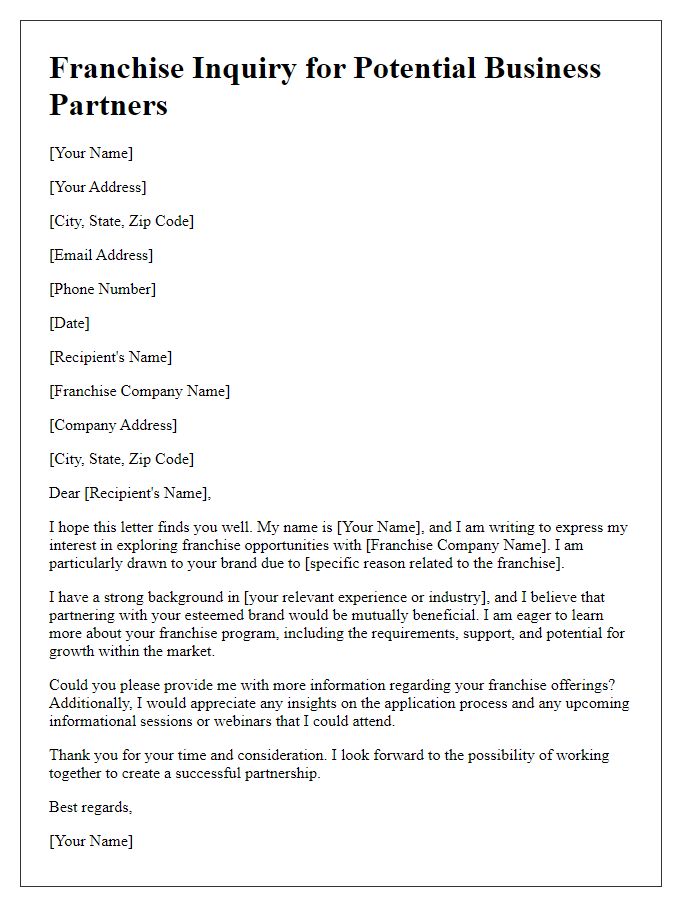
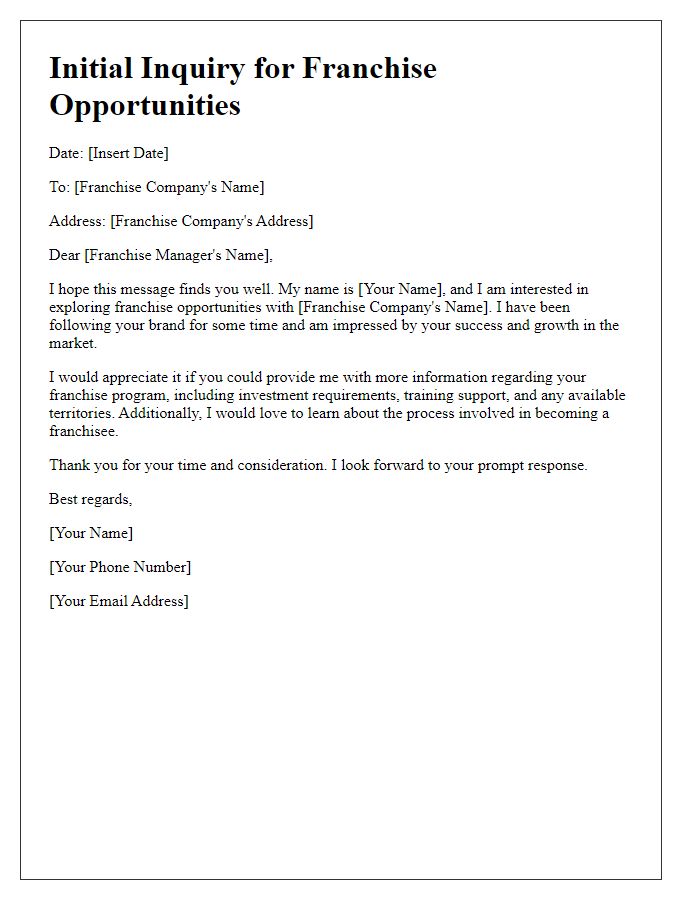
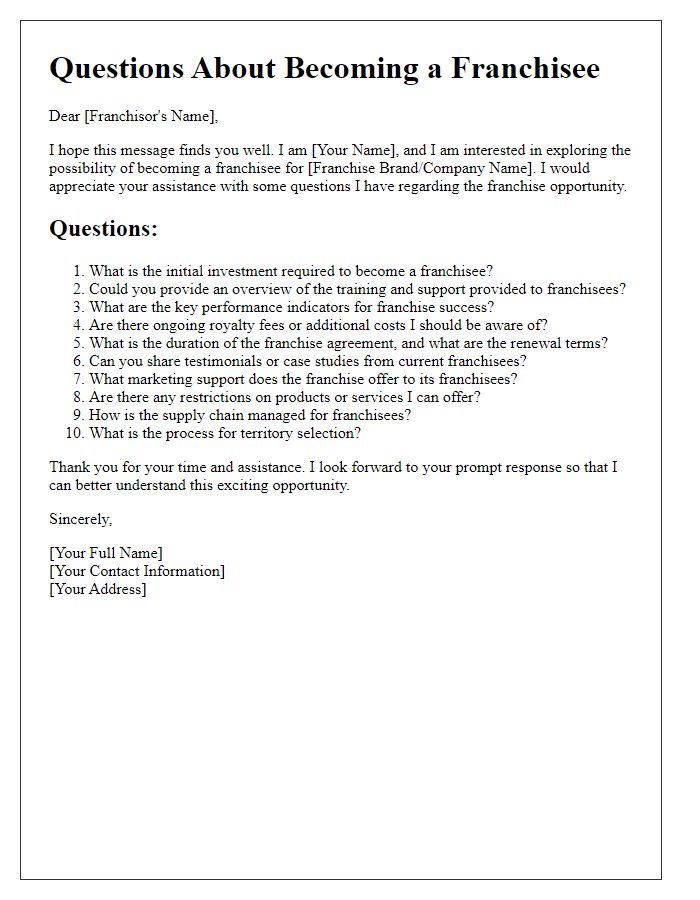
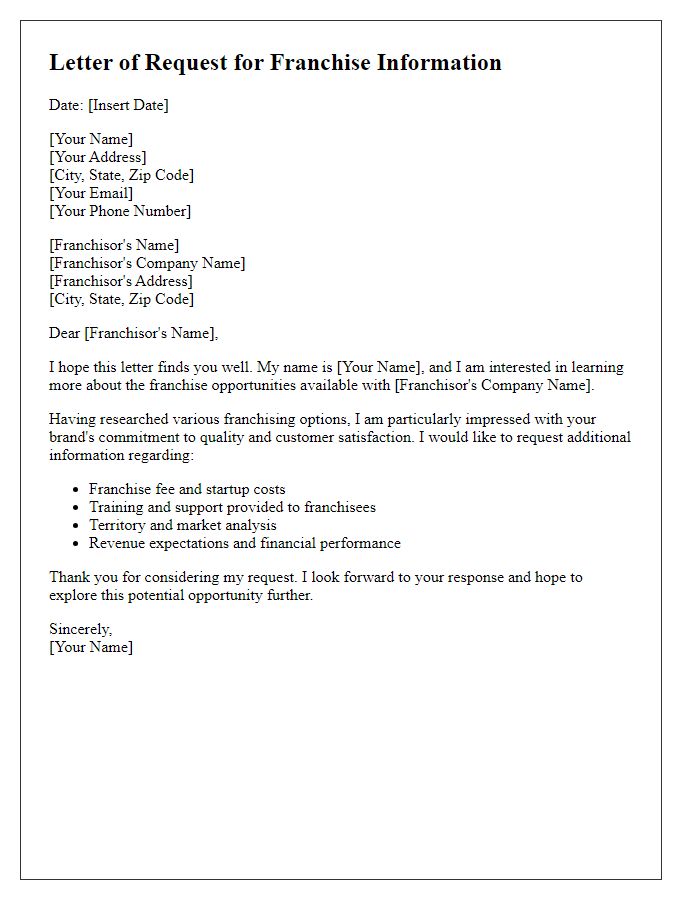
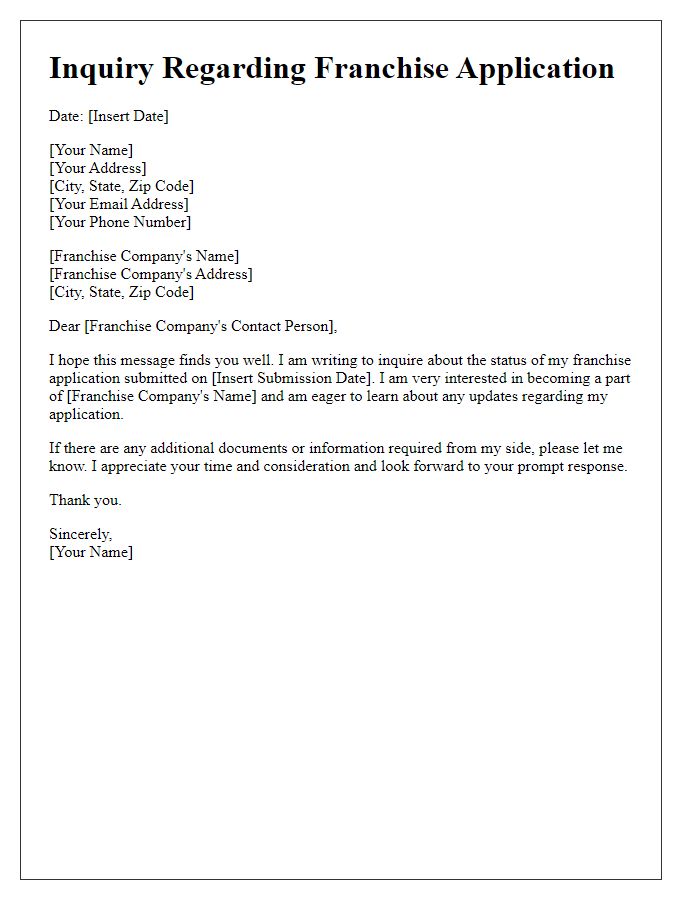
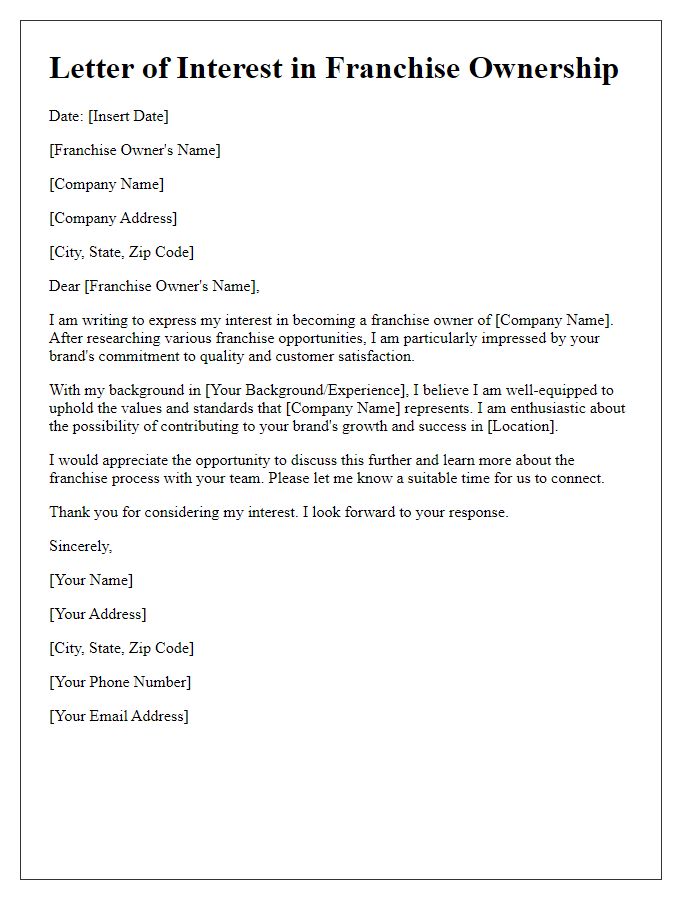
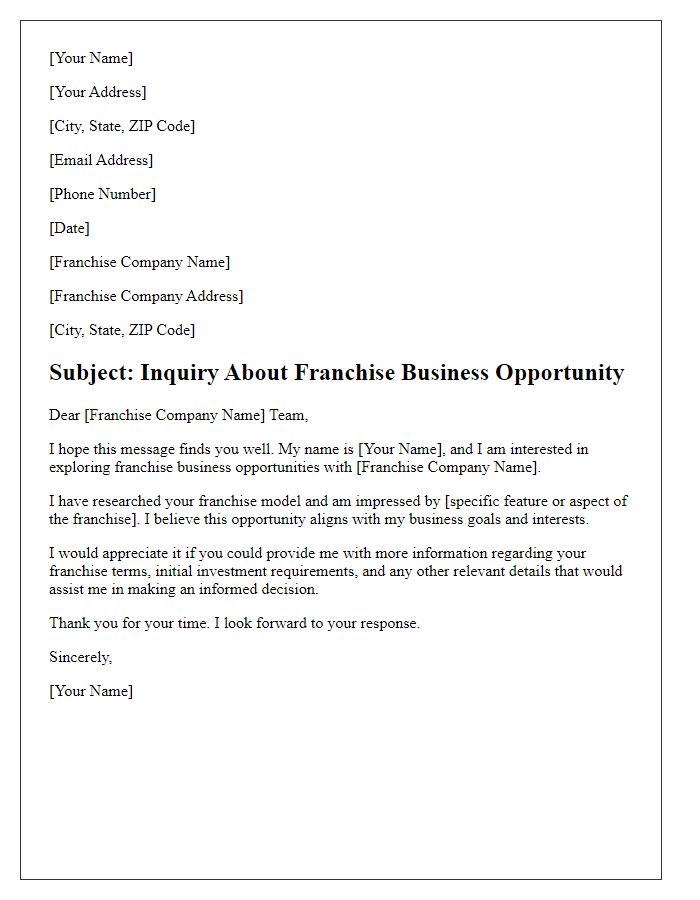
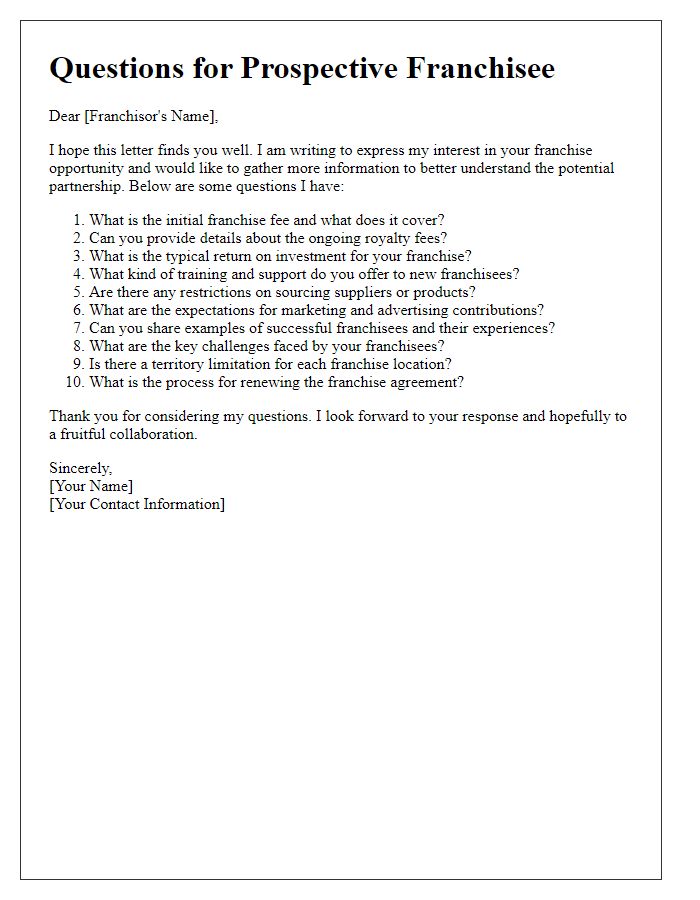
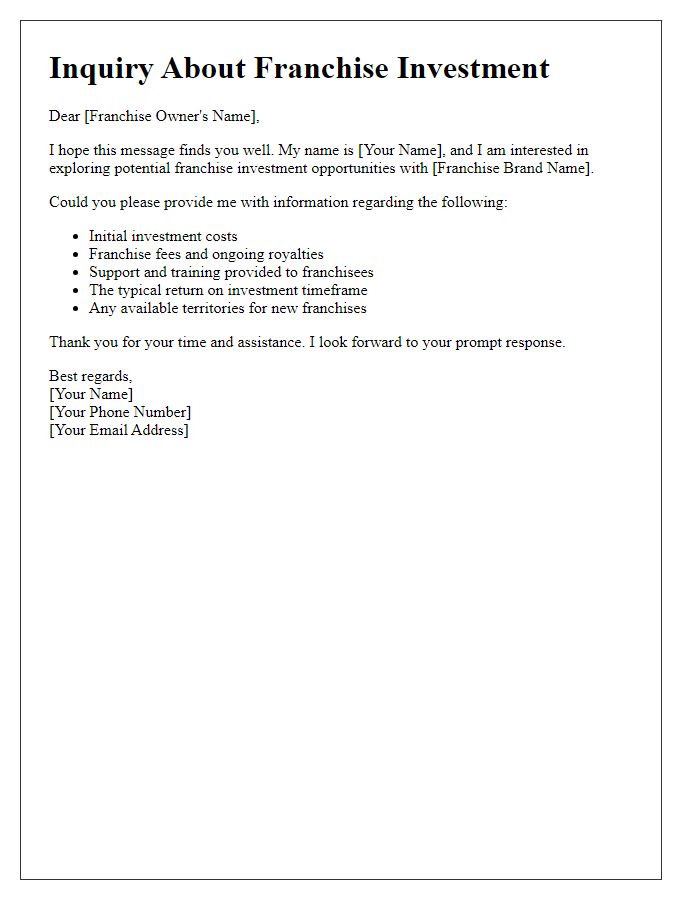
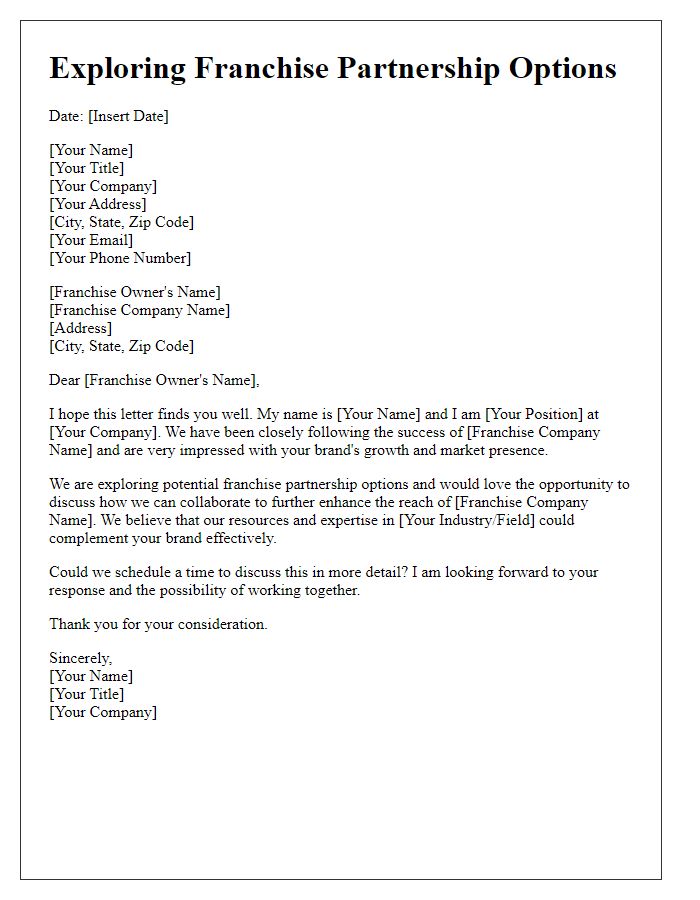


Comments